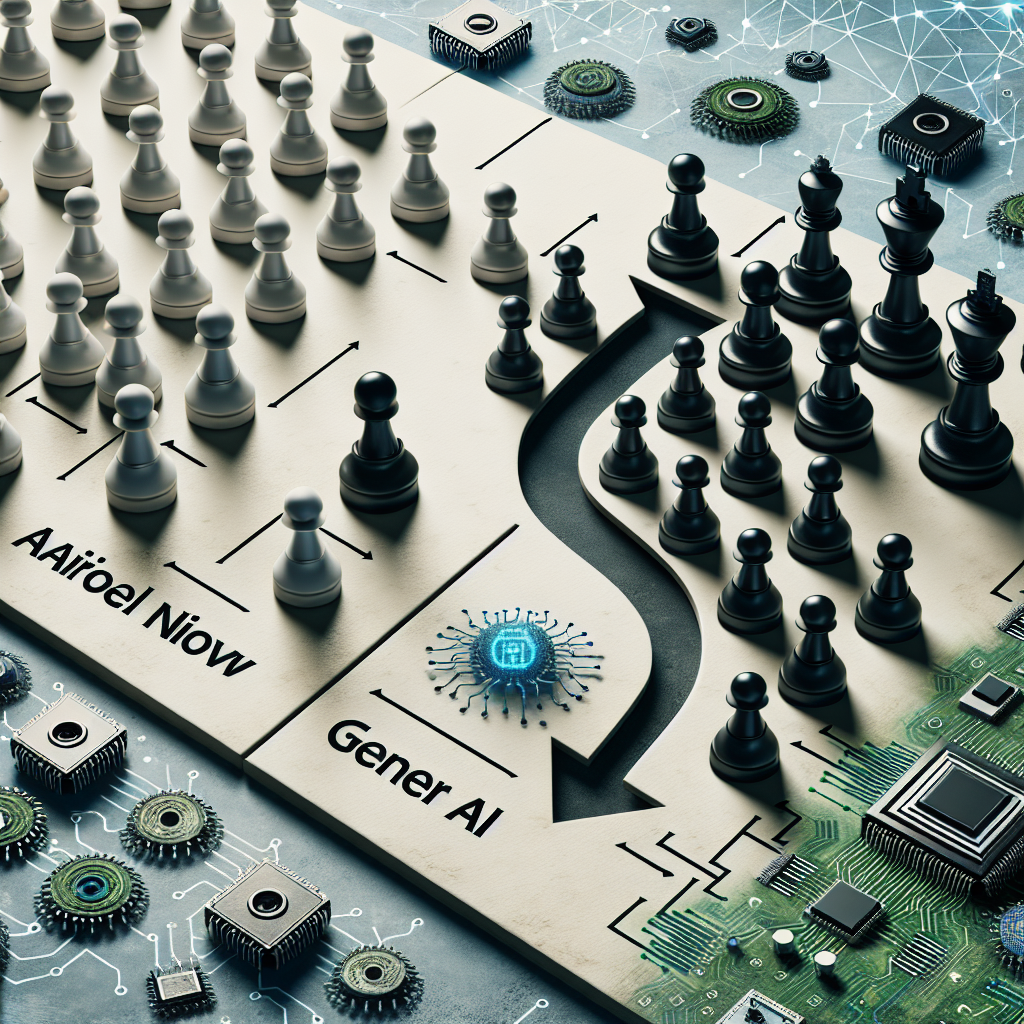From Narrow to General: How AGI is Changing the Game
Artificial General Intelligence (AGI) is a term that has been gaining more and more attention in recent years. While artificial narrow intelligence (ANI) has already made significant advancements in various fields, AGI represents a major leap forward in the realm of artificial intelligence. In this article, we will explore the concept of AGI, its implications, and how it is changing the game in the world of technology and beyond.
What is AGI?
AGI refers to the ability of a machine to perform any intellectual task that a human can do. This includes tasks such as reasoning, problem-solving, learning, and understanding language. Unlike ANI, which is designed for a specific task or set of tasks, AGI is designed to be more flexible and adaptable, able to perform a wide range of tasks without being explicitly programmed for each one.
The goal of AGI is to create machines that can think and learn like humans, with the ability to adapt to new situations and learn from experience. This level of intelligence would allow machines to perform tasks that are currently beyond the capabilities of even the most advanced AI systems.
Implications of AGI
The development of AGI has the potential to revolutionize many aspects of our society. From healthcare to transportation, education to entertainment, AGI has the power to transform the way we live and work. Here are some key implications of AGI:
1. Automation: AGI has the potential to automate a wide range of tasks that are currently performed by humans. This could lead to increased efficiency, lower costs, and improved productivity in many industries.
2. Innovation: AGI could lead to new breakthroughs in science, medicine, and technology. By leveraging the power of AGI, researchers could make new discoveries and develop new technologies at an unprecedented pace.
3. Personalization: AGI could enable more personalized and tailored experiences for consumers. From personalized healthcare treatments to customized entertainment recommendations, AGI has the potential to revolutionize the way we interact with technology.
4. Ethical considerations: The development of AGI raises important ethical questions about the implications of creating machines that are as intelligent as humans. Issues such as privacy, safety, and accountability will need to be addressed as AGI becomes more prevalent in our society.
How AGI is Changing the Game
The development of AGI is already having a significant impact on the world of technology. From research labs to startups, companies around the world are racing to develop the next generation of intelligent machines. Here are some ways that AGI is changing the game:
1. Breakthroughs in research: AGI is pushing the boundaries of what is possible in the field of artificial intelligence. Researchers are making new breakthroughs in areas such as natural language processing, computer vision, and machine learning, thanks to the power of AGI.
2. New applications: AGI is opening up new possibilities for applications in a wide range of industries. From autonomous vehicles to virtual assistants, AGI has the potential to revolutionize the way we interact with technology.
3. Increased competition: As more companies invest in AGI research and development, competition in the field of artificial intelligence is heating up. Companies are vying for top talent, acquiring startups, and forming strategic partnerships to gain a competitive edge in the AGI race.
4. Societal impact: The development of AGI has the potential to have a profound impact on society as a whole. From job displacement to ethical concerns, the implications of AGI are far-reaching and complex. It will be important for policymakers, researchers, and industry leaders to work together to address these challenges and ensure that AGI benefits society as a whole.
FAQs
Q: How is AGI different from ANI?
A: AGI is designed to be more flexible and adaptable than ANI. While ANI is limited to specific tasks or domains, AGI is designed to perform a wide range of tasks without being explicitly programmed for each one.
Q: When will AGI be achieved?
A: The timeline for achieving AGI is uncertain, with estimates ranging from a few decades to a century or more. While significant progress has been made in the field of artificial intelligence, there are still many challenges to overcome before AGI becomes a reality.
Q: What are the ethical implications of AGI?
A: The development of AGI raises important ethical questions about the implications of creating machines that are as intelligent as humans. Issues such as privacy, safety, and accountability will need to be addressed as AGI becomes more prevalent in our society.
Q: How will AGI impact the job market?
A: The development of AGI has the potential to automate a wide range of tasks that are currently performed by humans. This could lead to job displacement in some industries, while creating new opportunities in others. It will be important for policymakers and industry leaders to work together to address these challenges and ensure a smooth transition to a more automated future.
In conclusion, AGI represents a major leap forward in the field of artificial intelligence. The development of machines that can think and learn like humans has the potential to revolutionize many aspects of our society, from healthcare to transportation, education to entertainment. As AGI continues to evolve, it will be important for researchers, policymakers, and industry leaders to work together to address the challenges and opportunities that come with this groundbreaking technology.

